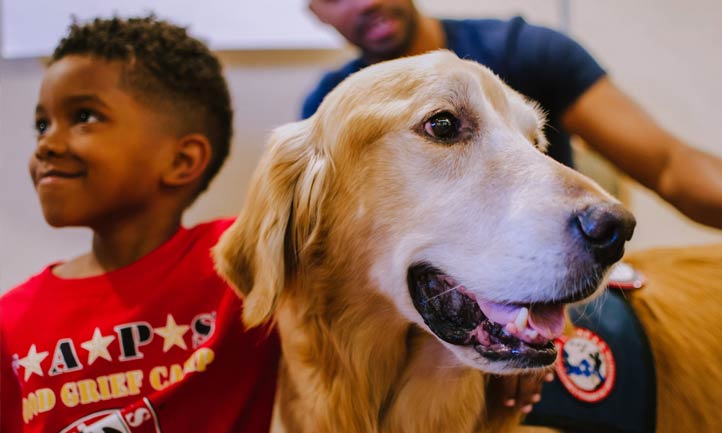Pets and Grief: Can Our Animals Help Us Heal After Loss?
Author: Stephanie Frogge
When the TAPS Helpline staff has a chance to connect every few days, we share information and updates, and we check in with each other — how are you, how is the week going, how is your family? And we know that family most definitely includes Niki’s 40-pound bulldog mutt who thinks she’s a lap dog, Maggie; my own Luna Cat, who is only sociable when I’m on Zoom or trying to work on my computer; or Kari’s snakes, who sometimes worry us when they refuse to eat for several weeks.
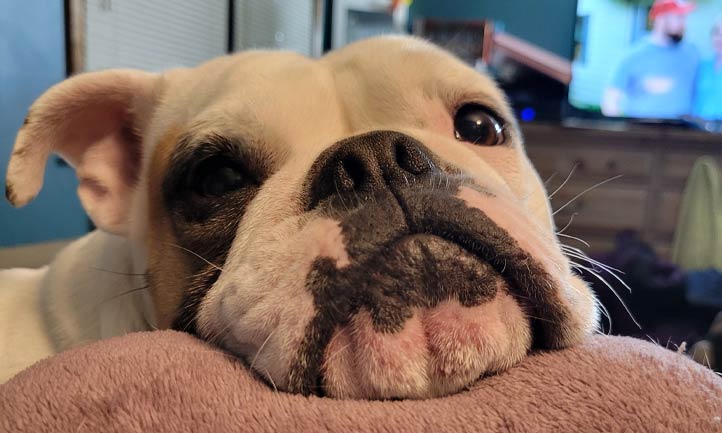
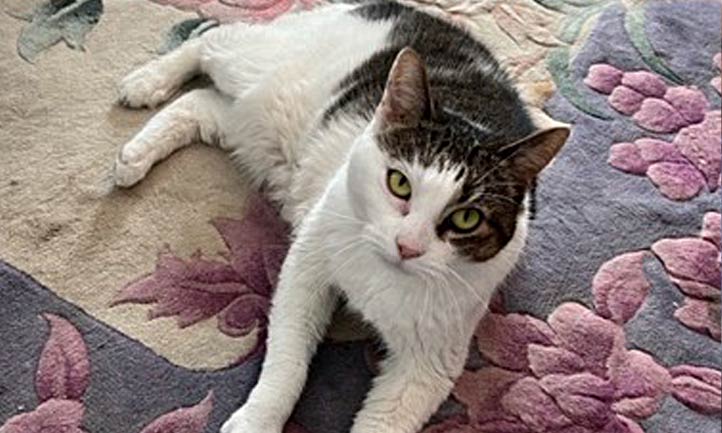
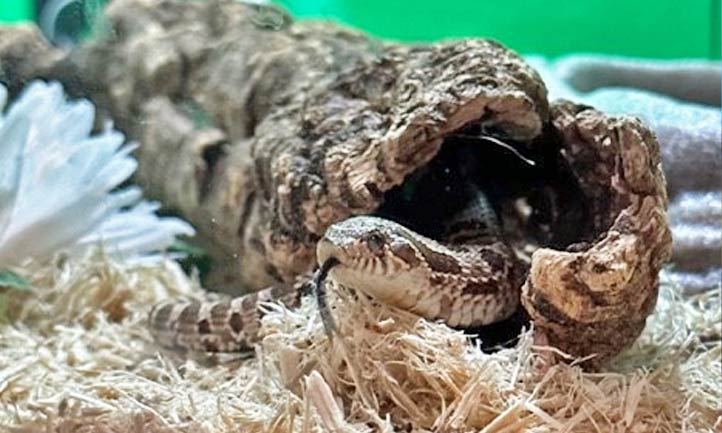

Conversation about our own special pets invariably gives rise to touching stories TAPS survivors have shared about their love for their dogs, cats, horses, reptiles, hamsters, pot-bellied pigs, or other critters they’ve welcomed into their hearts and homes. Given that 66 percent of American households have a pet — dogs being the most common — it’s no surprise that so many honorary members of the TAPS Family are of the four-legged variety. An undeniable standout theme is how our pets aid in coping and healing following the death of a loved one.
Connection and Companionship
When Barbara Block lost her husband, LTC Matthew Hennick, to suicide, their dog, Sophie, became a grounding point when everything else was chaotic and terrifying. Barbara shares:
“Sophie actually came to us through a program Matt was involved with at the correctional high school where he taught. Project Pooch helped troubled boys connect with and train dogs. If it hadn’t been for Sophie, I’m not sure what I would have done after Matt died. I was in an absolute fog of confusion and grief, and she was what kept me from just getting into a car and driving to who knows where. I had to take care of her, take her for walks, and make sure I had food in the house. Friends would text me in the evening to check on me, but also to make sure I’d taken care of Sophie.”
Science has found a number of health benefits connected with pet ownership. Pets — especially dogs — increase the opportunities we have to exercise, get outside, and socialize with other people. Regular walking or playing with pets can decrease blood pressure, cholesterol levels, and triglyceride levels. Pets can help manage loneliness, anxiety, and depression by giving us companionship. Studies show that pets can even decrease symptoms of PTSD.
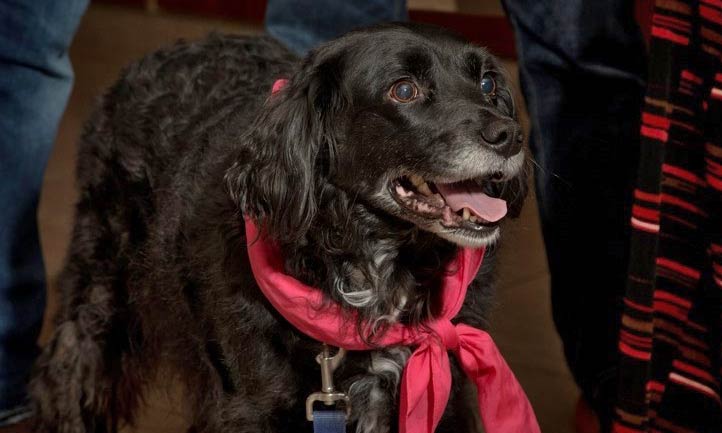
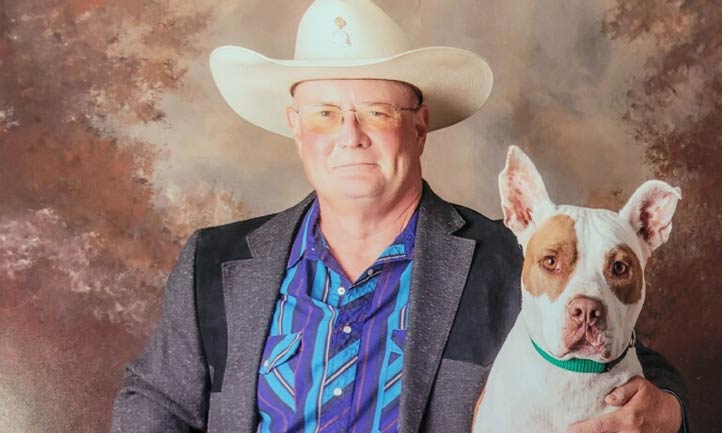
A few years after Ralph Toland’s son, Ralph Toland, III, was killed in a motorcycle wreck while in the Navy, Ralph saw a pit bull terrier featured on a local animal shelter’s website. The dog came in as a stray, and the shelter named it Ralph!
“It was meant to be,” Ralph recalls, “I’d had ‘pitties’ before, and I love rescue dogs. Ralphie and I have only been apart one night in the five years I’ve had him. Early on, Ralphie kept me from just sitting around thinking about my loss. He’s someone to come home to and, when I travel, he goes with me — even to TAPS events.”
Physical Health Impacts
Studies that looked specifically at pet ownership and cardiovascular disease found that animal companions may reduce the risk of heart disease, including heart attack and stroke. A 1992 report published in the Medical Journal of Australia found that — even when other health markers were the same, such as smoking, socioeconomic status, and body mass index (BMI) — pet owners had lower risk factors related to cardiovascular disease, including lower blood pressure, triglyceride levels, and cholesterol levels.
And, in the event of heart disease or a coronary event like a heart attack, a 2004 study by Gary Patronek and Larry Glickman with the Purdue University College of Veterinary Medicine found that pet ownership is associated with better survival rates when compared to people without pets.
Kari, from the TAPS Helpline, recalls:
“It's sort of funny, but I actually quit smoking because of a cat. After my brother, SGT Donald Marine, took his life, a feral cat showed up at my mother’s house, and she started feeding it. About the time I was getting ready to move back to my hometown and move back in with Mom, the cat gave birth to a litter of kittens. Knowing my affinity for animals, Mom told me up front that I wasn’t getting a kitten — I wasn’t to ask or beg or wheedle. She wasn’t going to let me bring a cat into the house. Period. I said, ‘How about I quit smoking?’
“Without even pausing, she said, ‘Deal!’ So I got Moose and probably much happier lungs. Moose is very entertaining and helps ground me when I’m feeling sad. He always wants attention, so I never feel alone, and his middle name is Donald, after my brother.”
Psychological Benefits of Pets
Interacting with a loving creature has psychological benefits as well. For Gwen, being with her cats is, in her words, “more relaxing than anything else I’ve found since my husband died.” Not only is the physical experience of petting a purring cat therapeutic, but it reminds Gwen that she and her husband actually met as part of an animal rescue team:
“We fostered cats, dogs, goats, a few lizards, and — one time — a sloth that had been brought into the U.S. illegally.” Gwen shares, “Pet rescue was just a part of who we were as a couple. I’m not physically able to do it anymore, and I don’t think I’d want to now that Alan’s gone, but having my two cats is good for me and for remembering happy times.”
Lasting Connection
For many members of the TAPS Family, pets serve as important connections to the past, whether they inherit a pet after a loved one passes or lean on the pet they shared with their loved one. Barbara Block’s dog, Sophie, was part of her life with Matt, and — unsurprisingly — grieved alongside her as she sought her “dad.” Survivors often report sensing that their pet is grieving too. Indeed, experts believe that pets not only react to the absence of a beloved human but are impacted by the sadness of those around them.
Some researchers note that it’s not enough to merely be around an animal to feel the positive impacts — the animal has to be perceived as a family member. A newspaper in Canada noted that an increasing number of obituaries were listing pets as surviving next-of-kin and conducted an analysis of its own records to examine this phenomenon.
As recently as 1990, the paper found no obituaries listing pets. By the mid-2000s, there were a few, and by 2015, 15 percent of the paper’s obituaries mentioned surviving pets. A 2015 study by Cindy Wilson that examined companion animals in obituaries noted that 2 percent of obituaries reviewed mentioned companion animals by name, suggested memorial donations to an animal charity, or both. While these numbers aren’t overwhelming, they are further evidence of the significant roles our pets play in our lives.
Markala Wretling’s dog, Jaedee, is not only an emotional support companion, but she literally saved her life at her lowest point.
“After my son — my only child — Jaedyn, was killed in a car crash while on active duty for the Army, I was in a fog through the funeral and the memorial service at Fort Hood. When I got home, though, I realized I didn’t know how I could live without him. I sat on my porch — head in my hands, thinking suicide was my only option — about to take my own life when I felt a wet nudge under my elbow. I opened my eyes to find a big dog, bloody from head to toe. Thoughts of suicide went out of my head, and I led the dog to my backyard where I began washing her with the hose to see how she was injured.
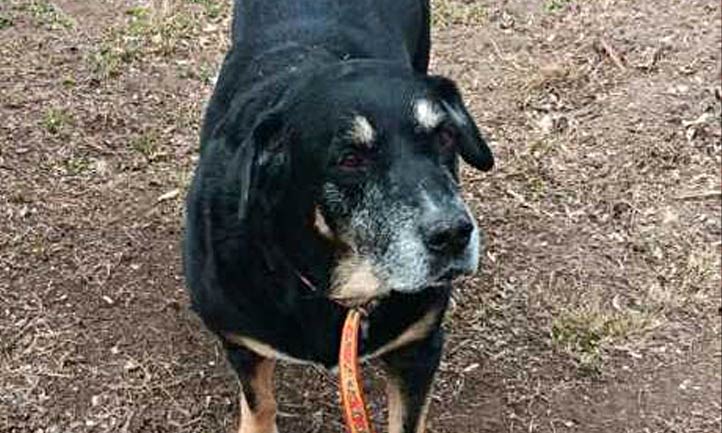
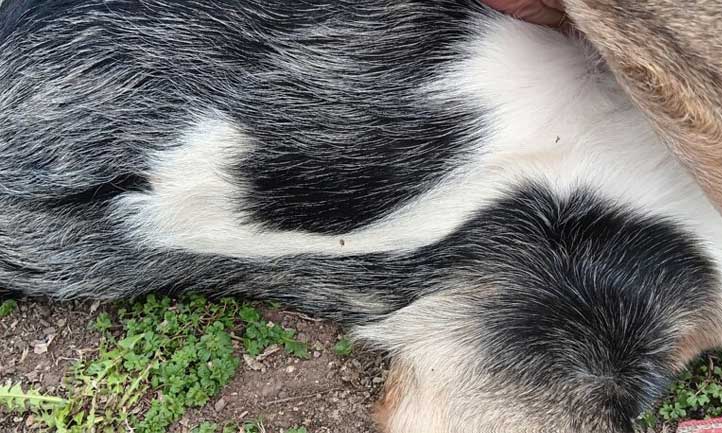
“I have rescued animals all my adult life,” Markala continues, “and I just went into autopilot to care for this one. I couldn’t see any obvious injuries that would explain the blood, and she didn’t seem especially stressed. In fact, as I washed her, she rolled onto her back with her paws in the air as though she wanted a belly rub. There on her chest was a big, white ‘J.’ I was so dumbfounded that I called a friend and asked her to come over right away. My friend arrived, saw the J, and looked back and forth between the dog and me several times before saying, ‘What the…’
“I know Jaedyn sent her to me — it was the only thing he could do that would save my life. The vet that I took her to that day couldn’t find any injuries; I suspect Jaedyn just wanted to make absolutely sure she would get my attention so he added a bucket of blood to freak me out. I named her Jaedee after my son; she’s a shepherd-rottweiler-lab mix. Sometimes I wish Jaedyn and Jaedee had known each other, but then I realize that in a way I don’t understand, they do. I call where Jaedyn is buried ‘his spot,’ in a large cemetery. The first time I took Jaedee, she made a beeline straight to Jaedyn’s spot and laid down on his grave. She knew.”
Past, Present, and Future
Markala’s story reminds us that pets can not only serve as connections to the person we lost and companions through deep grief, but also as a bridge to our futures after loss.
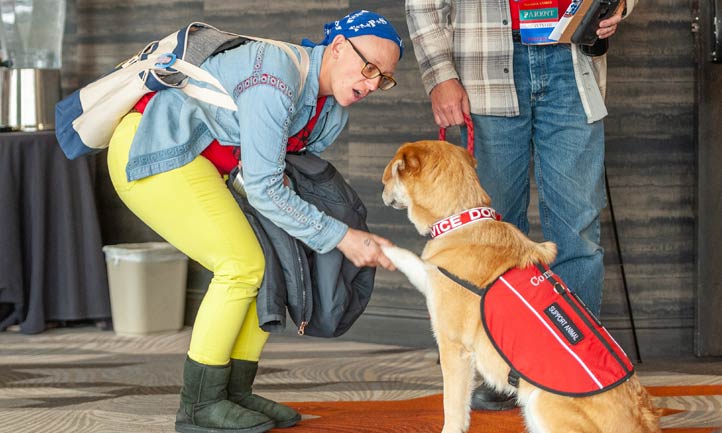
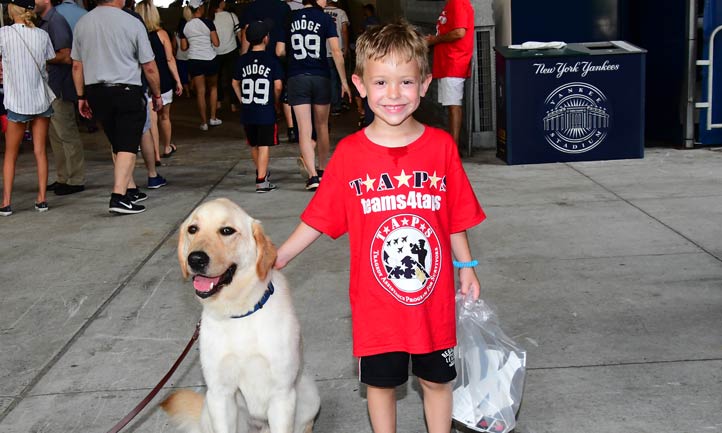
Things to Consider When Adopting a Pet
Before adopting a new pet, do some research to make sure it’s the right one for you and your family. The Centers for Disease Control and Prevention (CDC) recommends asking yourself these questions before bringing a new pet into your family:
- How long will this animal live?
- What does it eat?
- What type and how much exercise does it need?
- How large will it be when fully grown?
- What will veterinary care cost?
- Do I have enough time to properly care for and clean up after it?
- What kind of habitat does it need?
- Is this type of animal allowed in my house, neighborhood, apartment, or condo?
- Are there young children, older adults, or people with weak immune systems who will care for or be around it?
Stephanie Frogge, MTS, TAPS Staff Associate, National Military Survivor Helpline
Photos: Stephanie Frogge, Kari Marine, Barabara Block, Ralph Toland, Markala Wretling, Nicole Zimmerman, TAPS Archives

